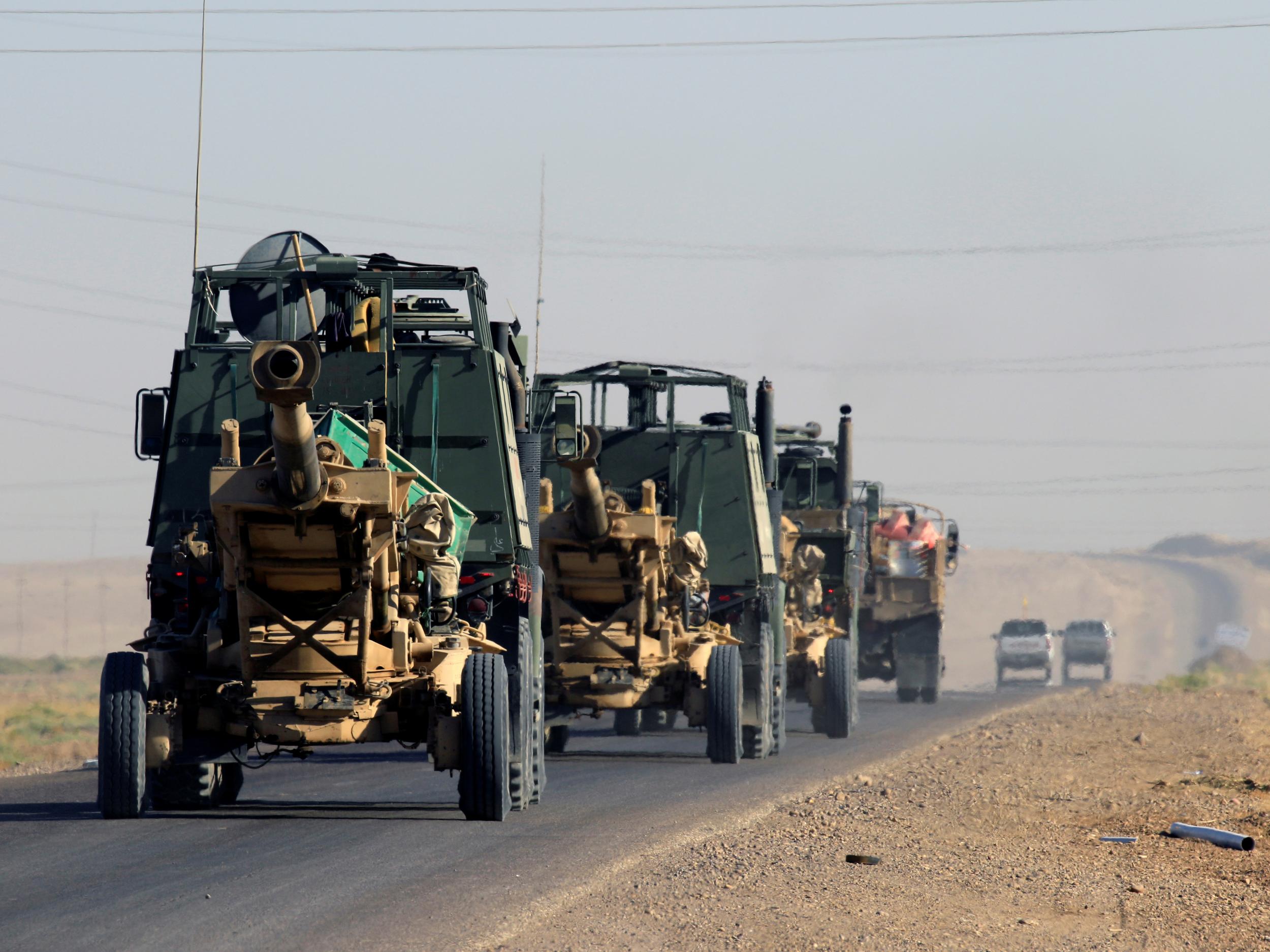Kirkuk: Why the battle over the Iraqi Kurdish city matters so much
Peshmerga fighters locked in combat with state forces since independence referendum

Three weeks after Iraq's Kurdish region held a referendum on independence, Iraqi forces entered the disputed city of Kirkuk, forcing Kurdish fighters to withdraw.
Here's what you need to know:
Why?
Kirkuk has found itself at the heart of a long-running dispute between Iraq's autonomous Kurdish region and its central government that reached fever pitch after Kurdish authorities staged a non-binding independence vote in late September.
The city sits on the edge of an expansive oil field that can be tapped for about a half million barrels per day. And while Iraq's oil revenues are supposed to be shared, disputes among the provinces have often held up transfers, leading parties to find leverage in holding the fields.
When Iraq's armed forces crumbled in the face of an advance by Isis in 2014, Kurdish forces moved into Kirkuk and secured the city and its surrounding oil wells. The city falls 32 kilometres (20 miles) outside the Kurds' autonomous region.
Baghdad insisted the city and its province be returned, but matters came to a head when the Kurdish authorities expanded their referendum to include Kirkuk. To Baghdad, it looked like a provocation that underscored what it sees as unchecked Kurdish expansionism. The city of more than 1 million is home to a mix of Arabs, Kurds and Turkmen, as well as Christians and Sunni and Shiite Muslims.
How did it happen?
Swiftly. Iraq's army, its anti-terrorism forces and the federal police began their operations before dawn on Monday. By late afternoon, they were in control of several oil and gas facilities, the airport, and a military base.
Kurdish officials accused the Iraqi army of carrying out a “major, multi-prong attack,” and reported heavy clashes on the city's outskirts, but a spokesman for Iraq's state-backed militias said they encountered little resistance. The vastly outmatched Kurdish fighters withdrew from the city en masse, and journalists were left to wander into abandoned barracks and administrative buildings.
Local police forces remained in the city at the invitation of Prime Minister Haidar al-Abadi who called on civil servants to stay and serve their constituents. He has said he wants to share administration of the city with the Kurdish authorities and called on Kurdish forces, known as the Peshmerga, to serve under the umbrella of Iraq's unified military command.
“We have only acted to fulfil our constitutional duty and extend the federal authority and impose security and protect the national wealth in this city,” said Abadi.
Abadi, in a bid to allay concerns of sectarian strife, promised the country's predominantly Shiite Popular Mobilisation Forces (PMF) would not enter Kirkuk, but Associated Press reporters saw Turkmen militiamen taking up posts in the western part of the city. The Iranian-sponsored militias are viewed with deep suspicion by Iraq's Kurds, who see them as a policy implement of Tehran that threatens demographic change.
Thousands of revellers waving the Iraqi Turkmen and Iraqi national flags were celebrating the transfer of power in downtown Kirkuk by nightfall, but thousands more were fleeing the city with their belongings to the neighbouring Kurdish region, fearful of national or militia rule.
Friction between US allies?
The dispute over Kirkuk pits two close US allies in the war against the Isis against each other. The US has armed, trained and provided vital air support to both sides in their shared struggle and called the frictions a distraction against the most important fight.
But for parts of Monday, Iraqi and Kurdish forces turned their weapons against each other. The Kurdistan Region Security Council said early Monday that the Peshmerga destroyed at least five US-supplied Humvees being used by Iraq's state-sanctioned militias.
It's the timing of the dispute that underscores how fragile Iraq is now. It was only three months ago that the Peshmerga, federal forces, and the PMF were manoeuvring alongside each other to recapture Mosul, Iraq's second largest city, from Isis, and two weeks ago that they expelled them from Hawija, their last bastion in northern Iraq. With IS now defeated there, the danger for Iraq will now likely come from its own divisions.
What's next?
It will take time for Iraq and its Kurdish region to restore amicable relations after the strains of the past three weeks. Baghdad wants the Kurds to disavow the overwhelmingly in-favour referendum result. This has been refused by Irbil, the Kurdish capital.
Talks between the two sides are now likely to focus on easing sanctions against the Kurdish region, including those on the banking sector and against international flights.
There is considerable distrust between Baghdad and Irbil dating back to Saddam Hussein's wars against the Kurdish region and forced Arabisation of some of its cities.
But the two sides also rely on each other, especially in fragile economic times. The Kurdish region is responsible for up to a quarter of Iraq's oil production, while Baghdad controls the currency and several pipelines in and out of north Iraq. The Kurdish region is presently entitled to 17% of Iraq's federal budget, of which the Kurds are expected to try to negotiate a bigger share, in addition to greater autonomy.
Inside the Kurdish region, elections are slated to be held next month and the two major parties will be looking to leverage the crisis to win votes. It is no accident, analysts say, that President Masoud Barzani, whose term expired in 2015, slated the referendum two months before elections. He hopes to cast himself as a visionary for the Kurds, they say, even if he can't deliver on the dream of independence.
AP
Join our commenting forum
Join thought-provoking conversations, follow other Independent readers and see their replies
Comments